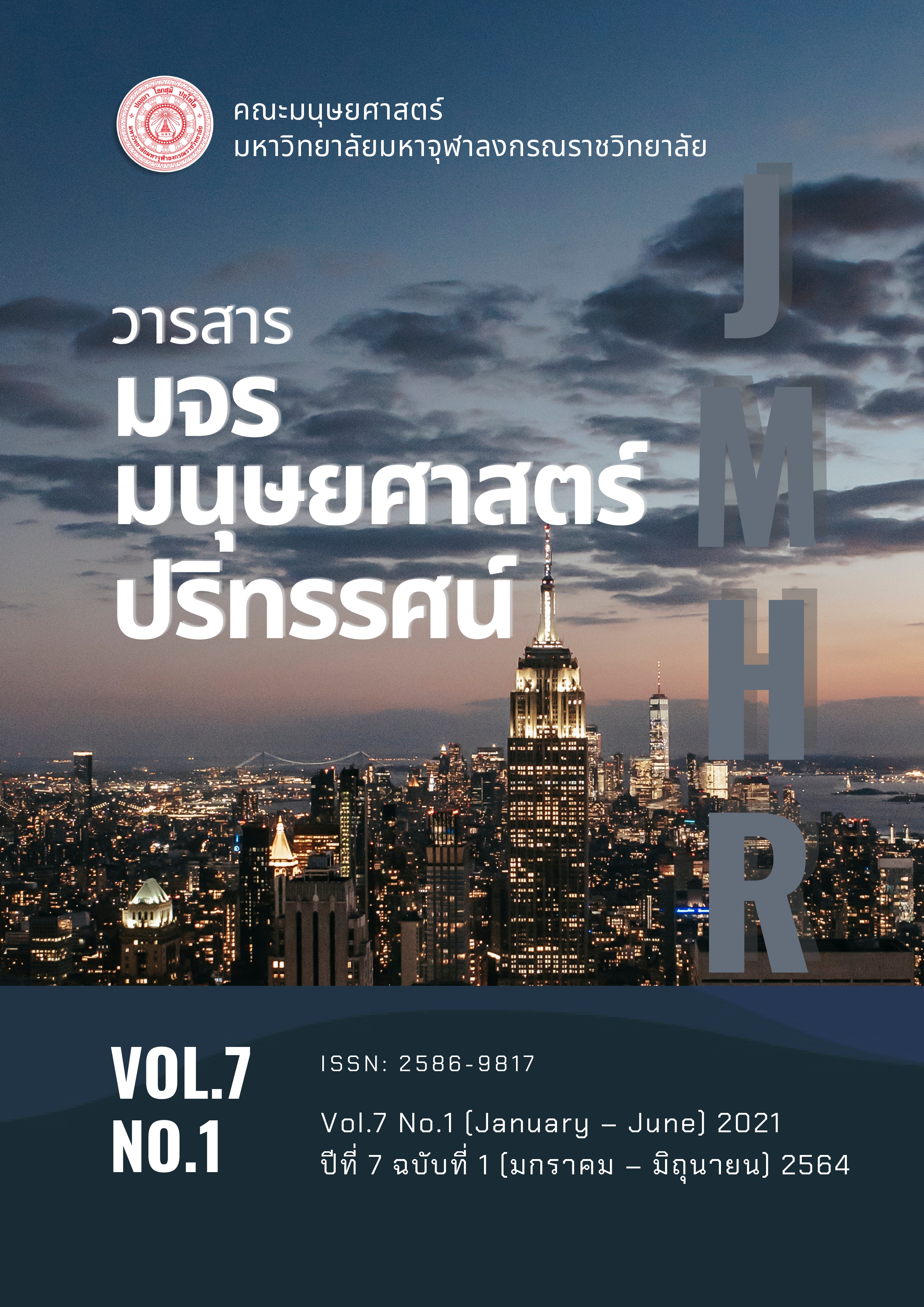การพัฒนาตัวบ่งชี้สุขภาวะทางจิตของพยาบาลวิชาชีพ
คำสำคัญ:
การพัฒนาตัวบ่งชี้, สุขภาวะทางจิต, พยาบาลวิชาชีพบทคัดย่อ
การวิจัยนี้เป็นการวิจัยและพัฒนา โดยมีวัตถุประสงค์เพื่อ 1) ศึกษาองค์ประกอบสุขภาวะทางจิตของพยาบาลวิชาชีพ และ 2) พัฒนาตัวบ่งชี้สุขภาวะทางจิตของพยาบาลวิชาชีพ กลุ่มตัวอย่างที่ใช้ในการวิจัย ได้แก่ พยาบาลวิชาชีพโรงพยาบาลในเขตกรุงเทพมหานคร จำนวน 1,422 คน โดยแบ่งเป็นใช้ในการวิเคราะห์องค์ประกอบเชิงสำรวจ (EFA) จำนวน 612 คน และการวิเคราะห์องค์ประกอบเชิงยืนยัน (CFA) จำนวน 810 คน ซึ่งได้จากการสุ่มแบบแบ่งชั้น (Stratified random sampling) เครื่องมือที่ใช้ในการวิจัย ได้แก่ แบบวัดสุขภาวะทางจิตของพยาบาลวิชาชีพ โดยผ่านการตรวจสอบความเที่ยงตรงเชิงพินิจ (Face validity) ได้ค่า IOC อยู่ระหว่าง 0.60 - 1.00 จำนวน 83 ข้อ มีค่าอำนาจจำแนกรายข้อ ระหว่าง 0.23 - 0.84 และมีความเชื่อมั่นด้วยค่าสัมประสิทธิ์แอลฟา (Coefficient alpha) ของครอนบาค มีค่าระหว่าง 0.80 - 0.90 การวิเคราะห์ข้อมูลใช้การวิเคราะห์สถิติบรรยายการวิเคราะห์องค์ประกอบเชิงสำรวจ และการวิเคราะห์องค์ประกอบเชิงยืนยัน
ผลการวิจัยพบว่า
1. ผลการวิเคราะห์องค์ประกอบเชิงสำรวจ (EFA) ได้จำนวนองค์ประกอบสุขภาวะทางจิตของพยาบาลวิชาชีพ จำนวน 10 องค์ประกอบ 81 ตัวบ่งชี้ ได้แก่ 1) การยอมรับกับชีวิต 11 ตัวบ่งชี้ 2) การมีสำนึกในตนและผู้คน 10 ตัวบ่งชี้ 3) ความตระหนักในชีวิต 9 ตัวบ่งชี้ 4) การมีสัมพันธภาพเชิงบวกกับผู้คน 10 ตัวบ่งชี้ 5) การรู้จักตนเองและผู้อื่นโดยแท้จริง 10 ตัวบ่งชี้ 6) การมีวิริยภาพในชีวิต 10 ตัวบ่งชี้ 7) ความจริงแท้ในชีวิต 7 ตัวบ่งชี้ 8) การมีอิสระแห่งตน 4 ตัวบ่งชี้ 9) ความพึงพอใจในชีวิต 6 ตัวบ่งชี้ และ 10) การมีสติในตน 4 ตัวบ่งชี้มีค่าความแปรปรวนที่สกัดได้ ร้อยละ 74.32 และมีค่าไอเกน (Eigen value) ระว่าง 1.05 – 41.90
2. ผลการวิเคราะห์องค์ประกอบเชิงยืนยัน (CFA) โมเดลสุขภาวะทางจิตของพยาบาลวิชาชีพ มีความสอดคล้องกับข้อมูลเชิงประจักษ์ดี (= 5719.57, df = 2552, p = 0.05, RMSEA = 0.04, NFI = 0.99, NNFI = 0.99, CFI = 0.99, RMR = 0.03, SRMR = 0.04, GFI = 0.94, AGFI = 0.90) โดยค่าน้ำหนักองค์ประกอบสุขภาวะทางจิตของพยาบาลวิชาชีพในรายด้าน มีค่าอยู่ระหว่าง 0.45 – 0.92 เรียงลำดับจากมากไปหาน้อย ได้แก่ การมีวิริยภาพในชีวิต ( = 0.92) การมีสัมพันธภาพเชิงบวกกับผู้คน ( = 0.90) ความพึงพอใจในชีวิต ( = 0.90) ความตระหนักในชีวิต ( = 0.90) การรู้จักตนเองและผู้อื่นโดยแท้จริง ( = 0.84) การมีสำนึกในตนและผู้คน ( = 0.83) การยอมรับกับชีวิต ( = 0.80) การมีสติในตน ( = 0.78) ความจริงแท้ในชีวิต ( = 0.70) และการมีอิสระแห่งตน ( = 0.45) และแต่ละตัวบ่งชี้ในแต่ละตัวประกอบ มีค่าน้ำหนักองค์ประกอบอยู่ระหว่าง 0.23 – 0.93 โดยค่าน้ำหนักองค์ประกอบทุกตัวมีนัยสำคัญทางสถิติที่ระดับ .01
เอกสารอ้างอิง
ชลธิชา แย้มมา. (2555). ปัญหาการนอนหลับ ความเหนื่อยล้า และประสิทธิภาพในการปฏิบัติงานของพยาบาลวิชาชีพในโรงพยาบาลจุฬาลงกรณ์ (วิทยานิพนธ์ปริญญามหาบัณฑิต สาขาวิชาสุขภาพจิต). คณะแพทยศาสตร์จุฬาลงกรณ์มหาวิทยาลัย. กรุงเทพมหานคร.
ทัศนีย์ ทองประทีป. (2552). พยาบาล: เพื่อนร่วมทุกข์ผู้ป่วยระยะสุดท้าย. กรุงเทพฯ : สำนักพิมพ์แห่งจุฬาลงกรณ์มหาวิทยาลัย.
นิภาพร ปานสวัสดิ์. (2559). คุณลักษณะของพยาบาลวิชาชีพที่ได้รับรางวัลดีเด่นกับวิถีการสร้างบารมีของพระโพธิสัตว์. วารสารสันติศึกษาปริทรรศน์ มจร, 4(2), 120-133.
ภาวดี เหมาทนนท์, และอมาวสี อัมพันศิริรัตน. (2563). ผลของรูปแบบการเรียนรู้ด้วยวิธีการสะท้อนคิดต่อการตระหนักรู้ในตนเองในนักศึกษาพยาบาล. วารสารมหาจุฬานาครทรรศน์, 7(7), 275-288.
ยุวดี เมืองไทย. (2551). ผลของกลุ่มจิตวิทยาพัฒนาตนและการปรึกษาแนวพุทธต่อสุขภาวะทางจิตของผู้ป่วยยาเสพติดที่อยู่ในระยะฟื้นฟูสมรรถภาพ (วิทยานิพนธ์ศิลปศาสตร มหาบัณฑิต สาขาวิชาจิตวิทยาการปรึกษา). คณะจิตวิทยา จุฬาลงกรณ์ มหาวิทยาลัย. กรุงเทพมหานคร.
สมเด็จพระพุทธโฆษาจารย์ (ป.อ. ปยุตโต). (2562). สุขภาวะองค์รวมแนวพุทธ. กรุงเทพฯ : พิมพ์สวย.
อรพินท์ ตราโต และยุพิน อังสุโรจน์. (2546). ความสามารถในการเผชิญและฟันฝ่าอุปสรรคในการปฏิบัติงานของพยาบาล. วารสารสภาการพยาบาล, 18(4), 1-14.
อากาศ อาจสนาม. (2560). พุทธบูรณาการเพื่อการพัฒนาสมรรถนะพยาบาล. วารสาร มจร. น่านปริทรรศน์, 1(2), 29-42.
Cumins, R. A. (1996). The domains of life satisfaction: An attempt to order chaos. Social Indicators Research. 38(5), 303-328.
Keyes, C. L. M., & Magyar-Moe, J. L. (2003). The Measurement and Utility of Adult Subjective Well-Being. In S. J. Lopez, & C. R. Snyder (Eds.), Positive Psychological Assessment: A Handbook of Models and Measures, (411-425). American Psychological Association, Washington DC.
Pearlman, Laurie A., & Saakvitne, Karen W. (1995). Trauma and the Therapist: Countertransference and Vicarious Traumatization in Psychotherapy with Incest Survivors. American Journal of Clinical Hypnosis, 38(4), 298–299.
Ruderma, M. N., Ohlott, P. J., Panzer, K., & King, S. N. (2002). Benefits of multiple roles for managerial Women. Academy of Management Journal. 45, 369–386.
Ryff, C. D. (1989). Happiness is everything, or is it? Exploration on the meaning of psychological well-being. Journal of Personality and Social Psychology. 57(6), 1069-1081.
Ryff, C. D., & Keyes, C. L. M. (1995). The structure of psychological well-being revisited. Journal of Personality and Social Psychology. 69(4), 719 – 727.
Ryff, C. D., & Heidrich, M. S. (1997). Experience and well-being: Expiration on domainof life and how they matter. International Journal of Behavioral Development. 20(2), 193-206.
Sastre, M. T. M. (1999). Lay conceptions of well-being and rules used in well-being judgments among young, middle-age, and elderly adults. Social Indicators Research. 47. Retrieved April 4, 2021, from https://link. springer.com/article/10.1023/A:1006989319411#citeas
Wiratchai, N. (2008). Evaluation indicator Development. The 1st Open Moral Conference, September 29, 2008. Bangkok: Ambassador Hotel. (In Thai).
World Health Organization (WHO). (2014). Mental health. Retrieved April 4, 2021, from https://www.who.int/mental_health/evidence/atlas/mental_health_atlas_2014/en/






